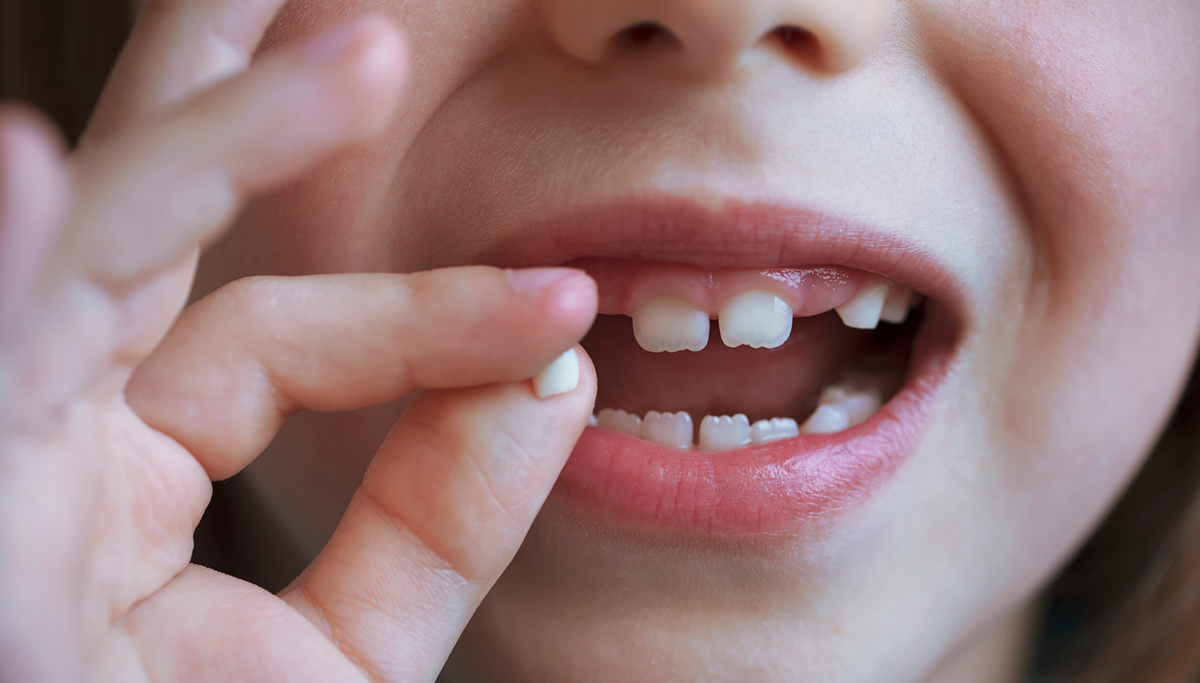Navigating Tooth Loss During School
Has your child ever experienced losing a tooth at school?
For many children, tooth loss can feel overwhelming—especially in an uncomfortable environment like school. As a parent, being prepared can help turn what might seem like a frightening experience into a manageable one.
Discover the emotional, social, and practical aspects of tooth loss, along with expert insights to help you and your child feel prepared for this important milestone.
Understanding tooth loss in school-aged children
Children generally begin losing their baby teeth (primary teeth) around the age of six. There's no need for concern if your child hasn’t begun losing teeth by their sixth birthday. Most kids will have shed their primary teeth in favor of their full set of adult teeth by around age 13.
Losing baby teeth is a natural part of childhood development, but it can disrupt a child’s daily routine. Tooth loss may temporarily affect activities like eating, speaking, and participating in school. While these changes are short-lived, they can still impact your child’s emotional and social well-being.
Supporting your child during tooth loss
The physical loss of a tooth isn’t the only concern during this time. Children may feel self-conscious, especially if they don’t yet realize that losing teeth is a shared experience among their peers.
It was once believed that younger children didn’t experience the same self-image problems often experienced by adolescent children. However, a study from the International Journal of Clinical Pediatric Dentistry found that “The facial appearance and outward appearance, when unaesthetic can negatively impact the psychology of preschool children during social interactions… Our study showed an association between social well-being and prematurely lost anterior teeth.”
Note: The study focuses on missing teeth due to dental trauma. However, the findings can be translated to the normal tooth loss experience.
As parents, it’s important to support children in building confidence during the tooth loss phase, though it can be a gradual process.
Here are some helpful strategies for supporting children who may feel self-conscious about losing their teeth or have other body-image issues:
- Foster a sense of self-confidence in your child.
- Serve as a positive role model.
- Don’t make comments about their physical appearance, including their teeth.
- Reinforce that losing baby teeth is a normal part of growing up.
- If your child is experiencing peer pressure or bullying, inform the school so that appropriate action is taken.
Practical tips for managing tooth loss at school
It’s important to prepare your child for the possibility of losing a tooth when you’re not there to offer immediate support.
What to do if a tooth is lost during school hours
Since children may experience tooth loss when parents aren’t present, it's important to prepare them for such situations. Teach your child to calmly seek out a teacher or school nurse immediately if they notice a loose tooth. Let them know it’s okay to ask for help and guidance from trusted adults at school.
Introduce the Tooth Fairy
The Tooth Fairy will also play a role when your child loses a tooth. Depending on the age and maturity of your child, the Tooth Fairy is a fantastic tool to use for oral health education.
It is a big deal when children lose a baby tooth, so a celebration should follow. Leaving gifts from the Tooth Fairy is a great way to help make losing teeth less scary and more enjoyable for kids.
Click here for some fun gift ideas from the Tooth Fairy.
Communicate with school staff
We recommend talking to teachers and staff to let them know your child could lose a tooth in the near future. Ask them how they handle situations where children lose a tooth during school and communicate with them how your child is managing the problem.
Teachers or the school nurse can support your child through the tooth loss process. The school nurse typically has guidelines and previous knowledge for any issues related to tooth loss, such as discomfort or bleeding.
Remember to communicate with school staff members you trust and try to give them any information to make this experience better for your child in advance.
Preparing for their first permanent teeth
Before your child begins developing their permanent teeth, it’s crucial to instill in them a consistent oral health routine. Encourage them to brush their teeth twice daily and floss once a day to lay the groundwork for maintaining a healthy smile when their new teeth come in.
Equally important is fostering a sense of pride in your child’s changing smile. Celebrate the arrival of their permanent teeth both at home and in school, making it a positive and exciting milestone. Recognizing this important phase in their development helps reinforce good oral hygiene habits and boosts their confidence during the transition.
Tooth loss during school doesn’t have to be scary
Navigating tooth loss at school can feel daunting, but by following these recommendations, the process can be much smoother.
Ensuring your child is prepared for this normal part of growing up, while offering both emotional and practical support during this time, will help your child feel comfortable and confident.
Looking for more information on dental care for children? Check out this blog: Tooth-Friendly Back-to-School Lunch Ideas.

